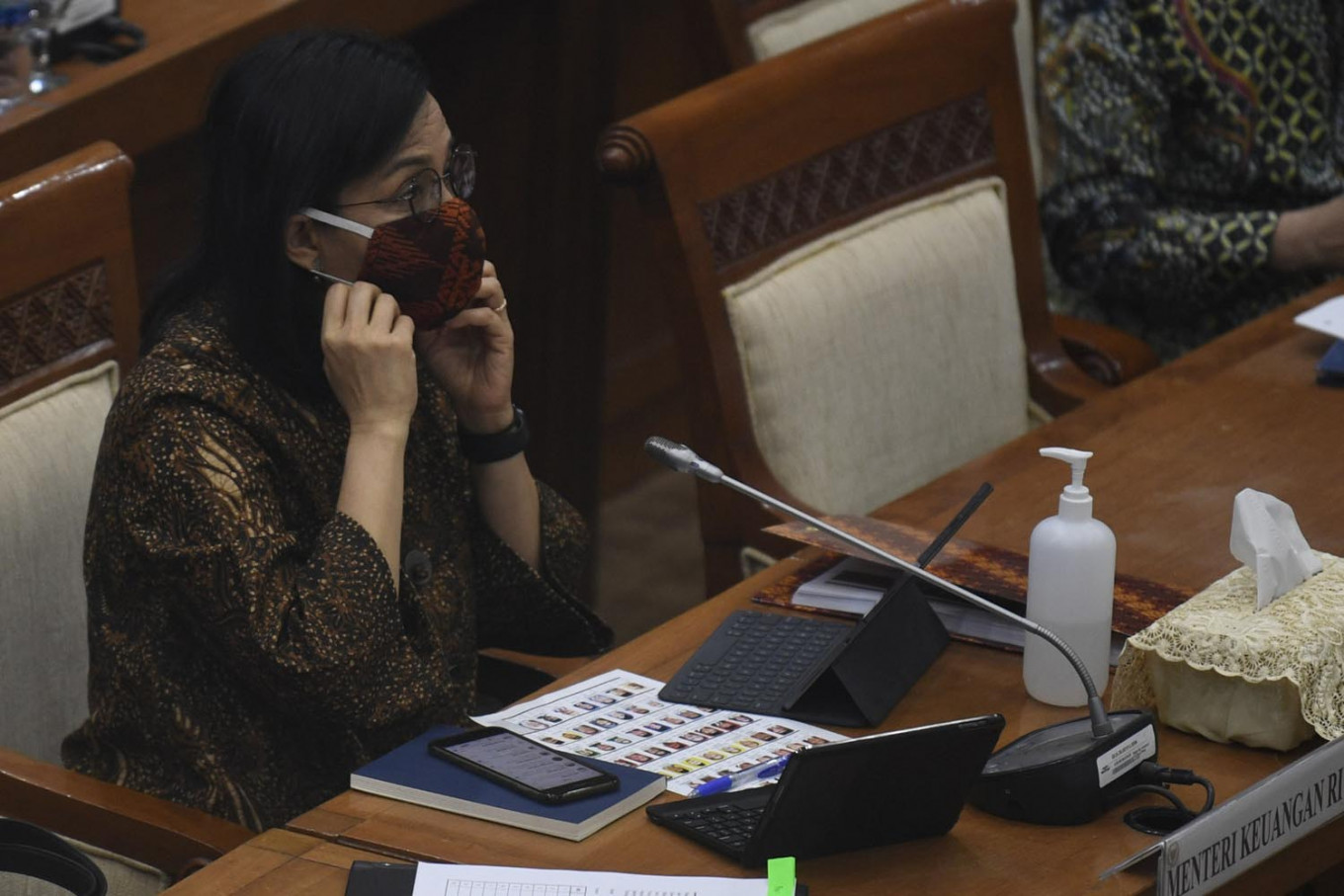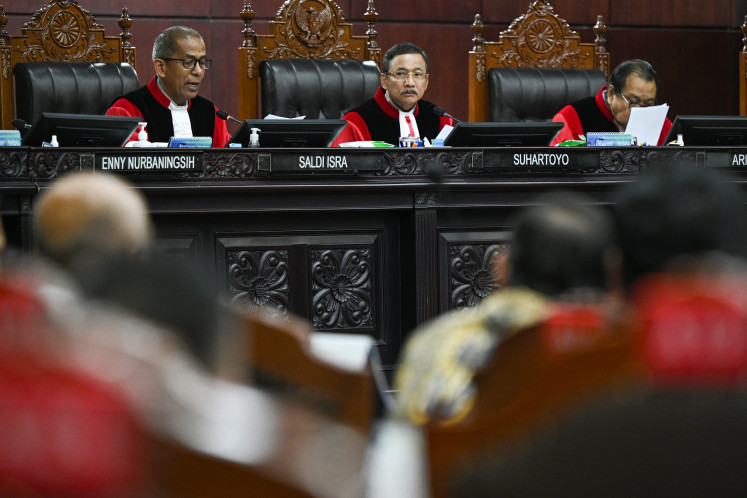Popular Reads
Top Results
Can't find what you're looking for?
View all search resultsPopular Reads
Top Results
Can't find what you're looking for?
View all search resultsGovernment raises 2021 budget deficit to 5.2 percent of GDP
Change text size
Gift Premium Articles
to Anyone
T
he government will raise its 2021 state budget deficit assumption to 5.2 percent of gross domestic product (GDP) to weather the uncertainties of the pandemic, which is expected to continue affecting the economy next year.
The change will be proposed to the House of Representatives, which previously agreed to the government’s proposal of a deficit between 4.17 percent and 4.7 percent of GDP.
President Joko “Jokowi” Widodo wanted greater fiscal flexibility next year due to the uncertainty over the availability of a vaccine, Finance Minister Sri Mulyani Indrawati said on Tuesday.
“We will raise the fiscal deficit next year to weather the uncertainty and revive the economy while also handling the COVID-19 pandemic,” she told reporters in a livestreamed briefing after a Cabinet meeting.
Read also: Indonesia records $17.5b budget deficit in H1 as govt seeks to bolster spending
With a wider deficit, the government would have an additional Rp 179 trillion (US$12.33 billion) to support the economy next year, Sri Mulyani said, adding that it would spend more of the budget on priority programs on food security, industrial area development, technology development, education and health care.
Indonesia has been struggling to fund its fight against the coronavirus outbreak with its cash-strapped budget, forcing the government to issue a law that allows it to widen the budget deficit beyond the 3 percent legal limit.
The government expects the deficit to reach 6.34 percent this year as it sets aside Rp 695.2 trillion for stimulus measures to strengthen the country’s healthcare response and boost the economy. It has pledged to reinstate the deficit cap of 3 percent in 2023 by tapering government spending and boosting state revenue after the virus threat subsides.
“The President has called on another Cabinet meeting to ensure the budget will be used to boost productivity and have the biggest economic impact,” Sri Mulyani went on to say. “This aims to reduce the poverty level and create more jobs to offset the job losses and rising poverty this year.”
Read also: No global bonds in sight as Indonesia focuses on local debt market
As many as 3.7 million individuals have lost their jobs so far this year. The total number of unemployed people will hit around 10 million by the end of the year, according to data from the National Development Planning Agency (Bappenas).
Sri Mulyani expects the economy to contract 0.4 percent at worst or grow 1 percent at best this year. Economic growth in 2021 is projected to be somewhere between 4.5 and 5.5 percent.
“We see that the impact of the pandemic will not be over by next year so it will have a ripple effect on the economy,” Bank Central Asia (BCA) economist David Sumual told The Jakarta Post, adding that the economy would be affected by several factors, including vaccine availability and the severity of the virus crisis.
“The government’s decision to maintain the deficit at a relatively high level may help spur economic activity and reduce the possibility of economic contraction,” he said. “But it should now think about financing since Bank Indonesia’s help is only a one-off policy.”
Read also: Corruption risk to Indonesia’s infrastructure push: Experts
The central bank has committed to a burden-sharing scheme worth Rp 574.59 trillion with the government as part of the country’s pandemic response, of which the central bank will buy Rp 397.5 trillion in government bonds directly while fully bearing interest costs. The scheme will only be implemented this year.
“The government should spend its budget on programs that have a multiplier effect in order to expedite economic recovery, which will help the government earn higher taxes,” said Bank Permata economist Josua Pardede.
“Government spending should be prioritized for programs that boost purchasing power, attract investment and create more jobs.”










